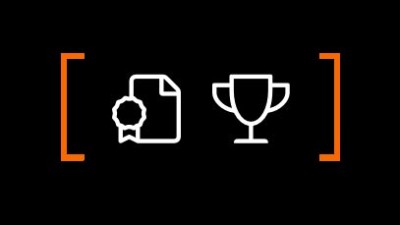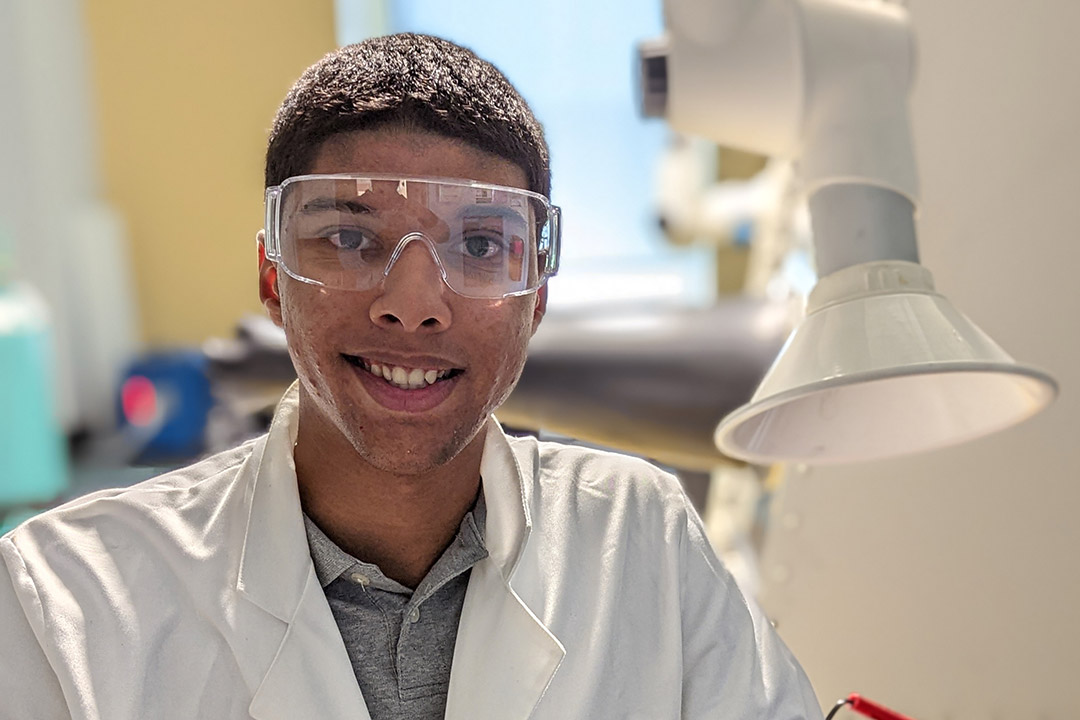Student excels as part of science and technology program
Joseph Vazquez has enjoyed working in RIT’s Clean Energy and Water (CEW) lab, led by Howard Tu.
Joseph Vazquez is a third-year mechanical engineering student from Rochester and is a part of the Collegiate Science and Technology Entry Program (CSTEP) at RIT. Last summer, Vazquez conducted research at Massachusetts Institute of Technology.
What made you come to RIT?
I came to RIT for my undergraduate because it has well-established STEM departments. The Rochester City Scholars (RCS) program, thanks to former RIT President Bill Destler and Dr. Rebecca Johnson, played a huge role in my decision to come to RIT. The RCS program relieved some of the financial burdens associated with attending a university and paired me with a life-changing mentor that continues to greatly influence my academic and professional career.
What is the CSTEP program?
CSTEP is a program geared to help students excel in STEM fields by providing funding for textbooks, research, conferences, and graduate school visits. It also offers professional development workshops that are graduate school and research focused. The program also provides students with resources to help gear them up for graduate schools, such as funding graduate school visits, paying for graduate school preparatory courses, and even graduate school exams. CSTEP helps lessen some of the barriers STEM students face and allows them to achieve their academic and professional goals by providing the resources students need.
How does the CSTEP program enrich your degree path at RIT?
Thanks to programs like CSTEP, I was able to conduct academic research and discover my passion for it. The program provided the financial support and guidance needed to do well in scholarly research. Thanks to workshops that programs like CSTEP offer, I was able to gain a clearer picture of what graduate school, networking, and scholarly research is. Coming into RIT, my vision on what an engineer can do was very limited. But because of the workshops and advisors, I realized how many options one with an engineering degree has. I have found my passion and can focus my vision to one that involves graduate school and academic research.
What was the research you conducted at MIT this past Summer?
This summer, I conducted academic research at MIT with Dr. Juejun Hu’s Photonic Materials group on characterizing ring resonators and coupling structures for optics and photonics. This experience was possible through the MIT Summer Research Program (MSRP). MSRP, like CSTEP, provides its students with the opportunity to grow as researchers and professionals by providing workshops, networking opportunities, and a research experience with MIT faculty.
In my research, I primarily utilized an optical vector analyzer to extract valuable information on coupling structures and ring resonators such as the insertion loss, propagation loss, and Q-factor. This work is important to the field of photonic integrated circuits because fiber-to-chip coupling structures are what allow for the transmission of light from large optical fibers to small silicon photonic waveguides.
Do you have a favorite research experience?
My favorite research experience is my work on solid-state batteries with Dr. Howard Tu at RIT. In Dr. Tu’s Clean Energy and Water (CEW) lab, I am a part of a team of 10 graduate and undergraduate students. My role in the team is categorized into the lab’s clean energy work, which is currently focused on solid-state battery research. My project aims at developing an in-situ method to monitor dendrite growth in solid-state batteries (SSB). This work is valuable to the SSB community because it is a new perspective to dendrite formation that provides pressure and position information in real time. I enjoy my work at CEW lab because I can see my designs come to life, compete in the competitive field of battery research, and work with knowledgeable individuals.
After graduating, what are your career goals?
After I graduate, I would like to continue improving my skill sets as a mechanical engineer by pursuing a graduate degree. I aim to obtain a Ph.D. in mechanical engineering so that I can be known as an expert in my respective field and earn the capacity to use my knowledge to make great scientific contributions.






